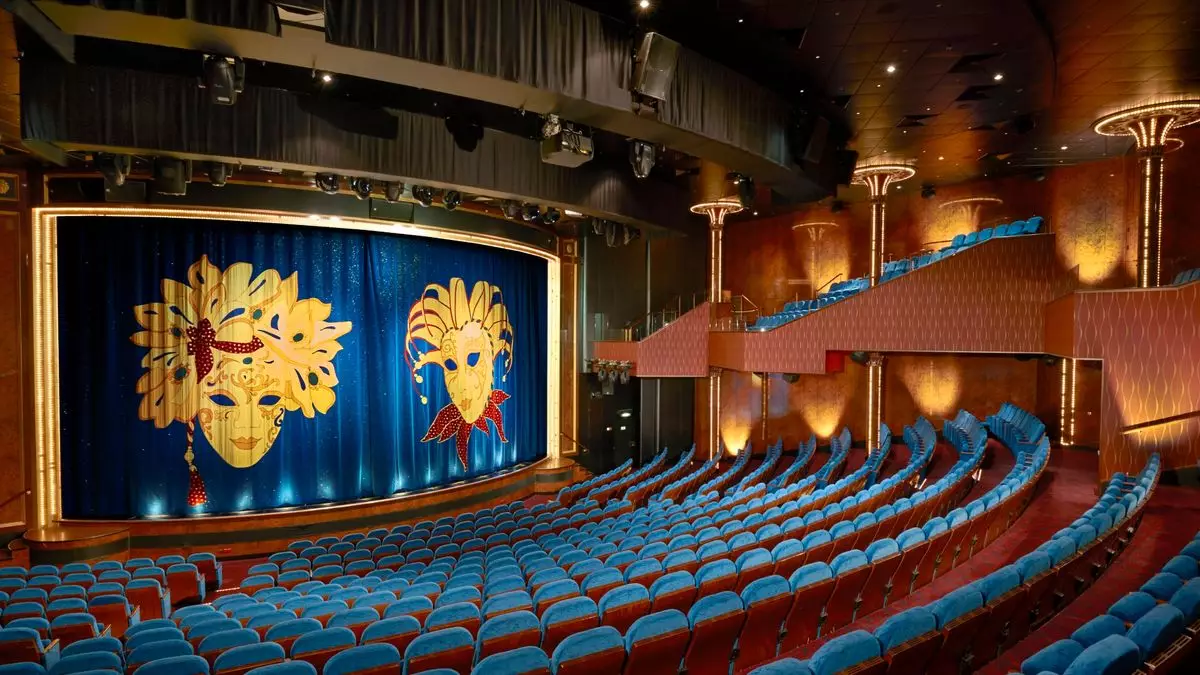Cruise lines have long been heralded for their extravagant entertainment offerings, often featuring grand Broadway-style shows as a central part of the guest experience. However, Norwegian Cruise Line (NCL) recently made headlines with a strategic departure from this norm. The company opted to drop several major productions, most notably “The Donna Summer Musical,” shortly after the Norwegian Prima’s debut in August 2022. This decision reflects NCL’s new entertainment ethos, emphasizing a more adaptable and guest-oriented approach.
The decision to retire “The Donna Summer Musical” was influenced by the operational difficulties inherent in staging such complex productions. According to NCL CEO Harry Sommer, the show required significant resources, including a full-time wig master. The fragility of the production became evident when a single cast member fell ill, forcing the company to cancel performances. Such complications led Sommer and his team to reassess their entertainment strategy, highlighting the need for shows that could withstand the unpredictability of cruise schedules. “The show shouldn’t be that temperamental that having one person get sick for a week takes down the entertainment,” Sommer remarked. This signaled a shift towards more sustainable performance models.
A key driver in NCL’s decision-making process was guest feedback. Through careful analysis of guest-satisfaction scores, NCL discovered a clear preference for shorter, more engaging performances that were easier to stage and manage. Sommer noted that guests favored shows that were “a little bit shorter, a little bit more lively,” contrasting with the longer, sometimes convoluted nature of traditional Broadway performances. It seems that as vacationers, patrons are more interested in maximizing their overall cruise experience rather than spending extensive hours seated in a theater.
Interestingly, Sommer’s insights reflect experience shared by cruisers across the industry. For example, during a recent trip on Royal Caribbean’s Anthem of the Seas, the two-hour “We Will Rock You” production, despite its excellent music, felt padded with excessive dialogue and prolonged scenes. Dedicating significant time to theater at the expense of socializing opportunities—be it in the casino or at onboard lounges—appears to conflict with the cruise choice of many guests.
In light of these insights, NCL has chosen to focus on developing in-house shows, prioritizing flexibility and spontaneity over high-stakes productions. This shift doesn’t signify a complete abandonment of Broadway; for instance, a 90-minute adaptation of “Beetlejuice” remains on NCL’s Norwegian Viva. However, the overarching goal is to balance high-quality entertainment with operational efficiency. By simplifying the approach and showcasing shows that resonate with passengers, NCL aims to enrich guest experiences while ensuring the robustness of its entertainment offerings.
What’s more, the inclusion of favorites like “Jersey Boys” on board the Norwegian Bliss suggests that NCL is not entirely forsaking Broadway but is instead being more selective in its implementation. This strategy allows for popular and proven productions to coexist with innovative, in-house performances that are flexible and aligned with guest preferences.
The revamp of NCL’s entertainment program has yielded encouraging results, with Sommer expressing pride in achieving record guest satisfaction scores. This financial and creative win signals that the new direction is not just a tactical error correction, but rather a sustainable model for the future. “Our highest-rated entertainment was the entertainment that cost us the least,” Sommer highlighted, illustrating the productive alignment between quality and cost-effectiveness.
Going forward, it will be fascinating to witness how NCL continues to evolve its entertainment offerings based on guest experience analytics. The cruise industry, often resistant to change, may well find itself reimagined under the influence of NCL’s successful models. As the company grooms its productions to meet evolving tastes and operational constraints, it may just lead the charge towards a new era of cruise entertainment, one where adaptability supersedes tradition.
Norwegian Cruise Line’s recent shifts reflect a growing trend towards prioritizing guest experience while refining the operational requirements of entertainment. By fostering a responsive and dynamic performance landscape, NCL demonstrates that the future of cruising entertainment lies not in the opulence of Broadway but in the joy and engagement of its guests. As the cruise industry looks to refine its offerings further, it may have much to learn from NCL’s innovative approach to onboard shows.


Leave a Reply